This Tribe Saved My Family and US Soldiers Decades Ago – Miles and Points Made It Possible to Say Thank You
Signing up for credit cards through partner links earns us a commission. Terms apply to the offers listed on this page. Here’s our full advertising policy: How we make money.
Miles and points can make what seems impossible become reality, be it a bucket-list vacation, luxury flights and hotels, or visiting family you wouldn’t otherwise get to see.
But it’s not often our hobby gives us the opportunity to say thank you for long-forgotten sacrifices and risks taken to help others. This year, the kids and I were able to do just that when we traveled to the Philippines and participated in a mission to the indigenous Aeta people.
The Aeta saved the lives of my grandparents, my mother, and her siblings during the Japanese occupation in World War II. But they were also later instrumental, with the help of my grandfather, in rescuing 6 American soldiers from the Bataan Death March. Five of them survived and were able to return to their families in the US.
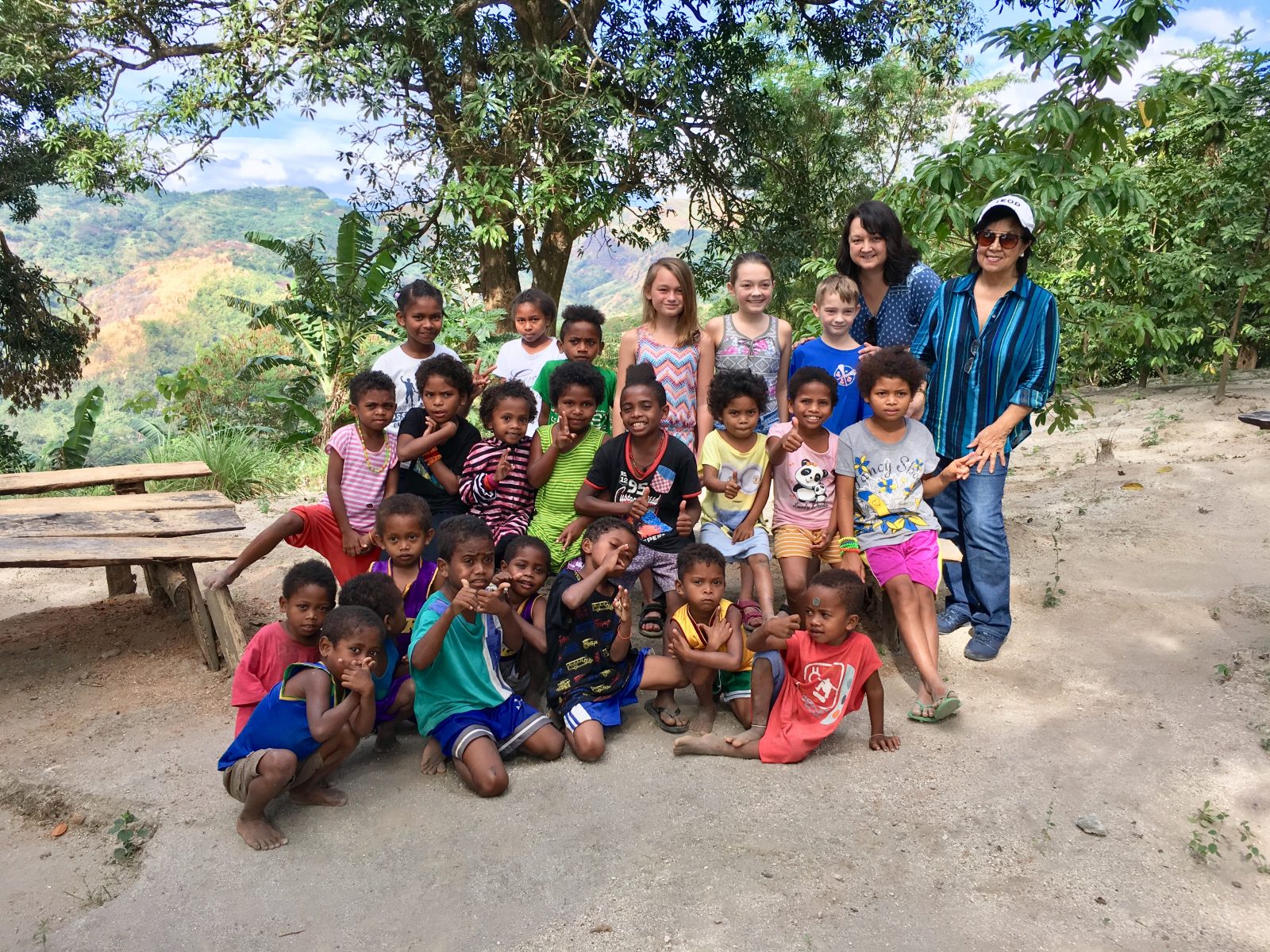
I’ll share more about the Aeta and what they did for my family and for US servicemen. And how we got to give back in a small way to express our gratitude for all they’ve done.
Saying Thank You, in Person
Travel opens a lot of doors, and I’m so grateful my family gets to do so for a fraction of the cost thanks to miles and points. It’s important to me that my children understand how lucky they are, and learn to give back to those less fortunate whenever they can.
(Video warning: Mild nudity due to breastfeeding)
A Bit of Family History
The kids were already able to donate their gently used sporting gear and clothing to kids in Cuba. But on this trip, we had a much more personal connection to the folks we wanted to help.
When the Japanese began their occupation of the Philippines in 1941, my grandparents and their children were forced to flee after troops invaded their town in Pampanga province. In fact, because my grandparents’ house was one of the largest in the area, the Japanese took it over as their headquarters (sadly, they burnt the house down when they eventually left). 🙁
My grandfather was an avid hunter and was good friends with many of the Aeta tribal elders who would join him and his cousins on expeditions. The Aeta are indigenous people who live in the mountains, and that’s where my grandfather led his family to escape the Japanese.
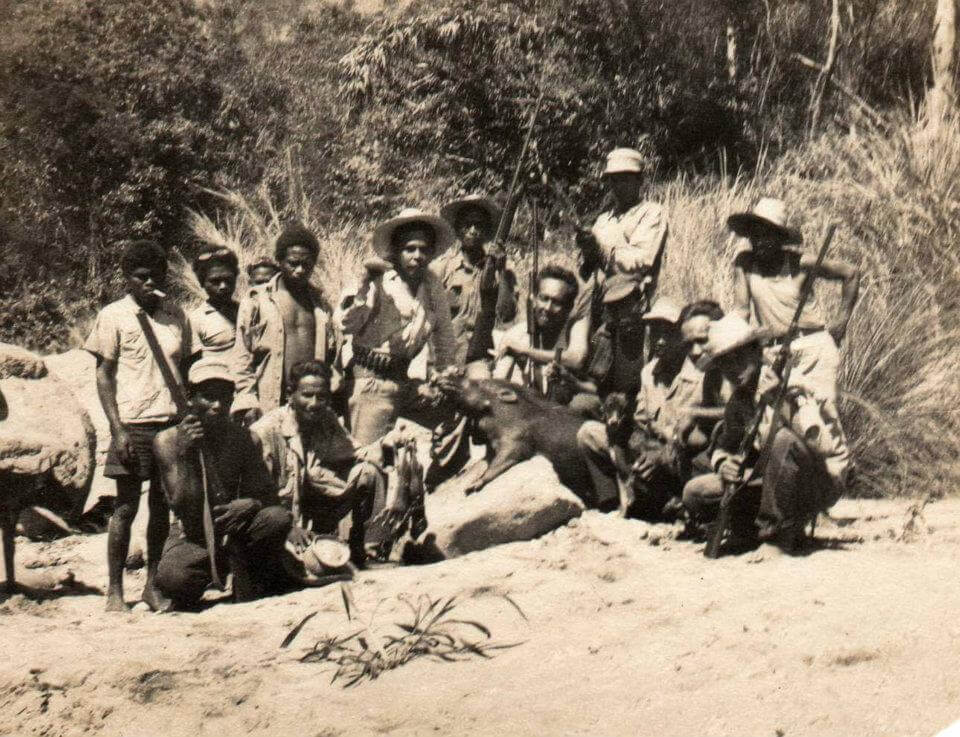
The Aeta expertly hid my grandparents, mom, aunts, and uncles in mountain caves for several months – the Japanese had no way of finding them. My mom was just a toddler so only has vague memories of this time, but her older siblings recall being well cared for – and well hidden. Because of his political activities and affiliations, my grandfather feared for his life and that of his family’s, and they would have all surely been killed had they remained in town.
My grandmother gave birth to a son prematurely (7 months) while hiding in the mountains. The Aeta women cared for him using their traditional remedies and techniques (my mom recalls them “laying him out in the morning sun”). He survives to this day.
The Aeta are poor, but they still managed to feed and shelter my grandparents’ little family, at great risk to themselves. Had their efforts been discovered by the Japanese troops, they too would likely have been killed. But their friendship and loyalty to my grandfather was far more important to them than the risk they were exposing their own families to. These folks were truly selfless.
Bataan Death March and Rescue of US Soldiers
Eventually it became safe for my grandparents and family to come out of hiding. I’m not sure what changed exactly, but they were able to move into a little house in town and return to somewhat normal life, despite the presence of Japanese troops. My oldest aunt, Isabel, recalls going back to school and having to learn Japanese in class instead of English and Spanish.
Meanwhile, the Bataan Death March was in full swing. Somewhere between 60,000 and 80,000 American and Filipino soldiers were forced to march from Bataan (near Manila) to San Fernando, Pampanga – a 60+ mile journey. Some died en route, many were tortured and abused, and the march was later declared a war crime. Reading some of the accounts from survivors is shocking and deeply disturbing.
The route passed close to my grandparents’ home, and from what I understand, news had spread around town of the horrific treatment the POWs were getting from the Japanese. That was when my grandfather and his Aeta friends encountered a group of American soldiers and promptly pulled them from the march. I’m not sure if they went looking to rescue soldiers, or if they stumbled upon the group by accident, but either way they sprung into action and got the servicemen off the route and into hiding before the Japanese figured it out.
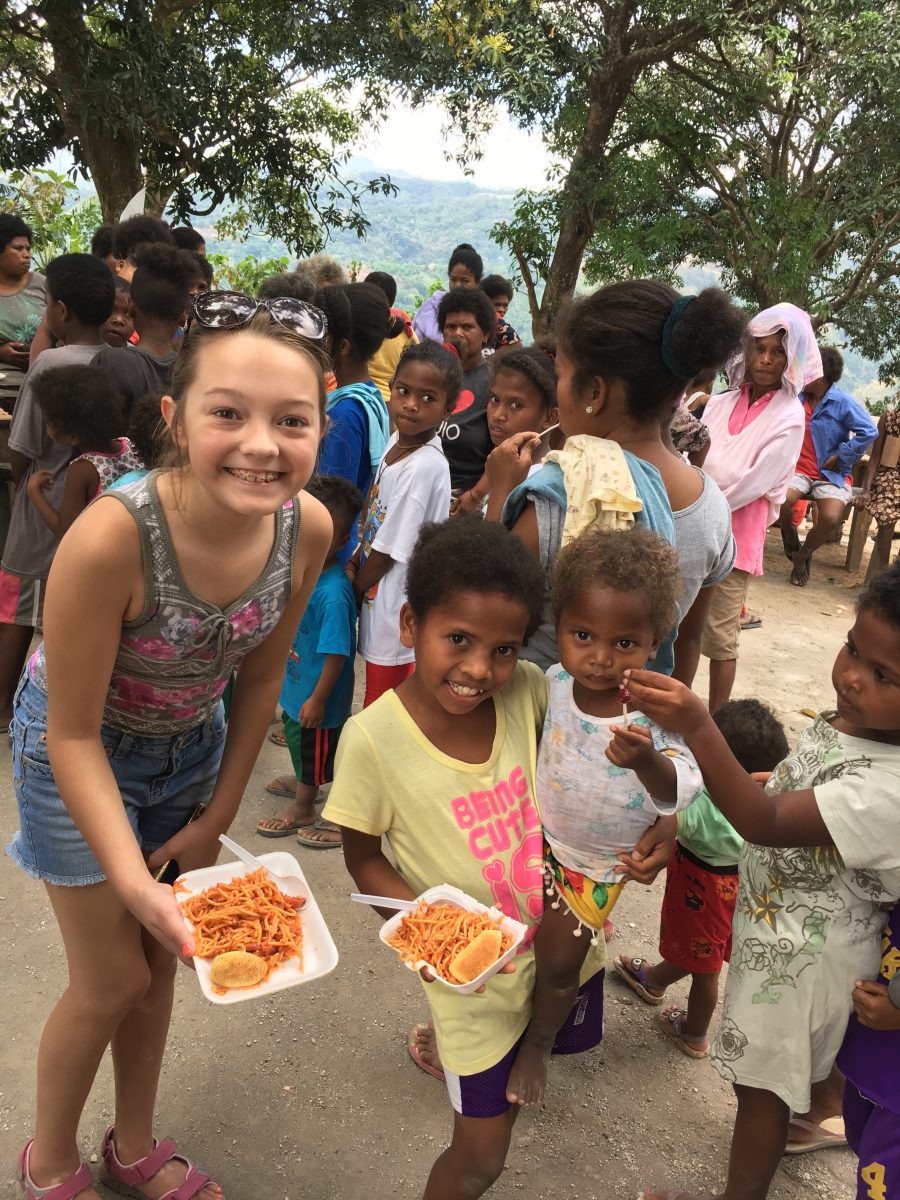
My grandfather couldn’t shelter them in town. So the Aeta folks took over and squirreled them away, keeping them out of sight and way off the radar of the Japanese troops. My aunt recalls meeting the Americans and being stunned at their appearance:
They were emaciated, like skeletons. Weak and sick with dysentery, they were shitting blood.
The Aeta people were able to restore the US soldiers’ health and fed them with what little they had. Sweet potatoes, beans, corn, and papaya came from the tribe’s own crops, and other supplies were secretly run from town on the sly by Aeta friends. And my grandfather’s buddy, a doctor, was able to supply medicine to get the soldiers back on their feet.
These soldiers would not have lived had it not been for the efforts of the Aeta. Of the 6 pulled from the march, 5 survived and returned to the States. The one fellow who perished actually drowned trying to swim to a US rescue ship.
My aunt tells of how my grandfather secretly penciled in the soldiers’ names and serial numbers on the back of a dresser at their home, so that in case the soldiers were discovered and killed, he’d be able to let US authorities know. She only recalls 3 of their names:
- Lt. John Kerry (not that John Kerry)
- Sgt. Paul Cahill
- Cpt. Barker
My grandfather kept in touch with some of the soldiers for years after the war. And my mom recalls sometimes receiving care packages from the US (“Full of Hershey chocolate bars!” she says). But it’s doubtful these soldiers were able to return the favor to the Aeta people directly.
After my grandparents immigrated to Canada in the 1970s, they lost contact with the surviving soldiers, and my grandfather passed away in 1987. However, our family still maintains a close relationship with the Aeta tribe that helped them, and that’s how we got the opportunity to give back in a small way.
Returning the Favor
My mom and her siblings rebuilt and restored the old family house in Pampanga almost 20 years ago, and all spend some time each winter “back home” to escape the cold North American climate. They’ve kept up the friendships with the Aeta tribe and each year organize a mission high up in the mountains to bring donations of food, medicine, clothing, school supplies, and toys.
In many areas, the Aeta don’t have running water or electricity, and still live a very simple lifestyle untouched by modern conveniences. One of the nuns who helps run the small school and mission in the village we visited said the kids don’t typically even finish elementary school. Often young girls are married off in their early teens and end up having babies, and that’s it for their education.
This past February, my kids and I joined my mom and a few friends on their yearly mission. The kids handed out care packages we’d made (thanks Emily for the idea) for the children there which included a new toothbrush, toothpaste, washcloth, soap, shampoo, and treats. And we distributed clothing, toys, school supplies, and hot meals for the dozens of children and parents who came out to the community center.
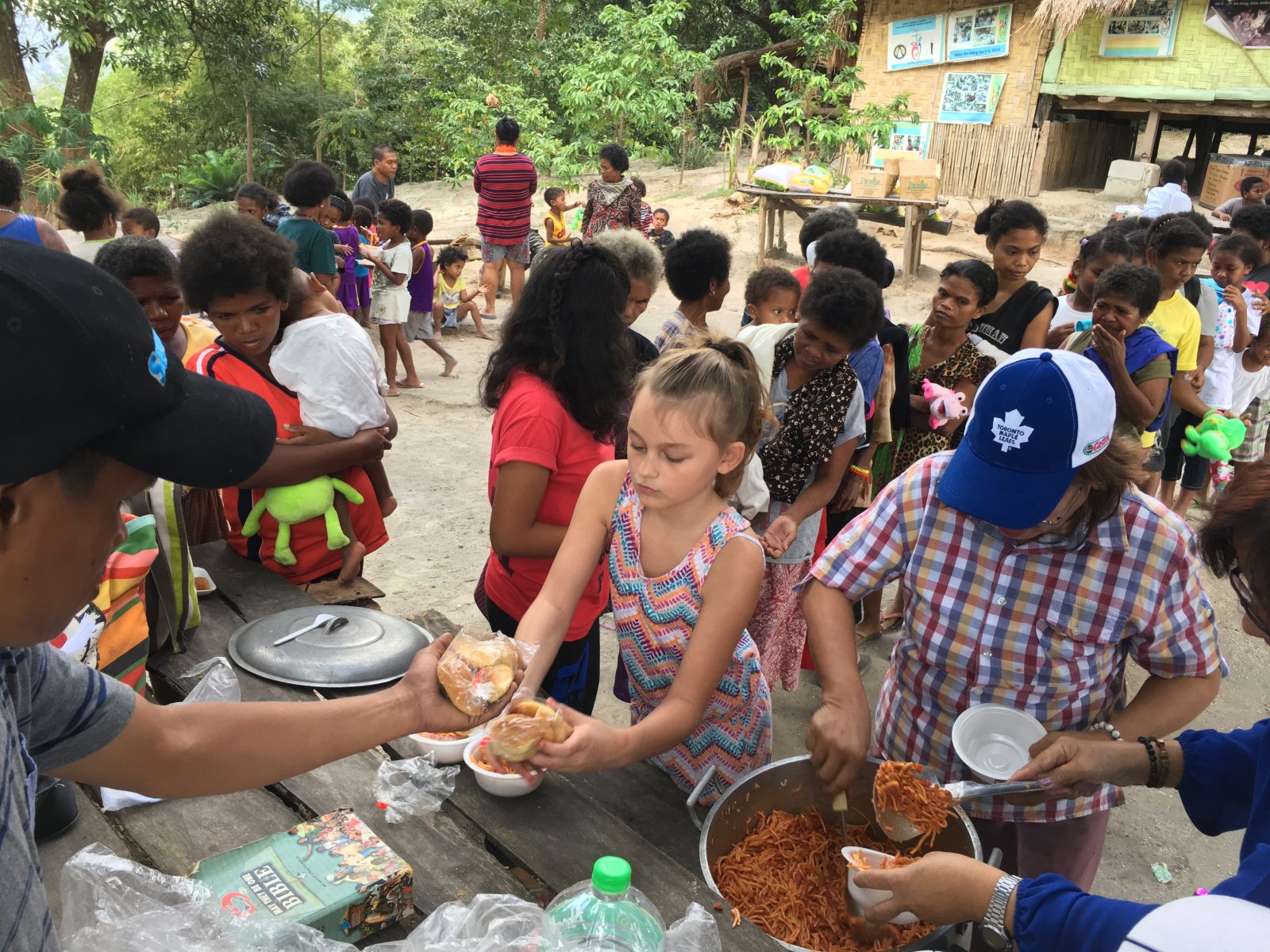
Of course, none of the folks who rescued the soldiers and helped my family during the war are alive today. But these are their children, grandchildren, great-grandchildren, and beyond. I wish there was more we could do to make their lives better.
The kids had never been to the Philippines before, and I hadn’t been for 20 years. Miles and points made it possible for our family to make the trip. And we’ll return, with a renewed drive to help out however we can. We are so fortunate to have the opportunity to give back to these kind folks, even in a small way.
As my oldest daughter put it: “Mom, we probably wouldn’t even exist if not for the Aeta people.” It’s the truth.
I wonder if the families of the American troops who were rescued by the Aeta have any idea how lucky they are, too. If you know any descendants of soldiers who survived the Bataan Death March, please share this story, because I’d love for the Aeta to get the recognition they deserve for their part in saving these soldiers. And I don’t think this story is the only one.
Bottom Line
Miles and points aren’t just for dream vacations and bucket-list trips. They also offer an opportunity to give back and return favors.
My kids and I traveled to the Philippines this year and participated in a mission to the Aeta people in the mountains of Pampanga province. This tribe hid my grandparents, mother, aunts, and uncles in mountain caves during the Japanese occupation in World War II. And they later rescued 6 US soldiers from the Bataan Death March, restored them to health, and kept them hidden from the Japanese until the war was over.
The Aeta still live in very basic conditions and have a tough life without access to essentials like electricity, running water, or education. It’s like they’ve been forgotten. Yet, from what I’ve learned, they are some of the most generous and selfless people in the world.
When we left our mission, an elderly Aeta gentleman came running up to our truck and banged on the door. His arms were filled with giant papayas he’d grown. “Please take them,” he said in the local dialect. “As a thank you.”
Editorial Note: We're the Million Mile Secrets team. And we're proud of our content, opinions and analysis, and of our reader's comments. These haven’t been reviewed, approved or endorsed by any of the airlines, hotels, or credit card issuers which we often write about. And that’s just how we like it! :)

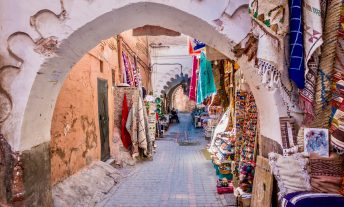




Join the Discussion!